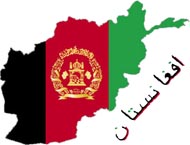Taliban and Afghan drug barons unite to create instability
 New Delhi/Kabul - Under the very eyes of international troops Afghanistan has grown into the world's second-largest drug producer.
New Delhi/Kabul - Under the very eyes of international troops Afghanistan has grown into the world's second-largest drug producer.
Despite a slight retraction in previous years the country once again accounted for 93 per cent of worldwide opium production in 2008.
Opium is the base substance for producing heroin.
In the meantime, an argument has engulfed NATO member states, major contributors to foreign troop contingents in Afghanistan, whether some local drug barons should be hunted down and killed even if evidence that they're actively supporting the Taliban is lacking.
While not every drug baron might be a Taliban supporter, both groups seem to pursue a common goal: to keep Afghanistan instable.
A connection between the radical Islamist Taliban and poppy cultivation has long been established. The rebels levy a tax on opium farmers.
A report by the United Nations last November was headlined: "Drugs finance the Taliban's war machine."
The UN Bureau against Drugs and Criminality (UNODC) estimated that last year alone the Taliban were able to raise some 100 million dollars from poppy taxes.
Other sources of financing enable the rebels to set up heroin labs, where the drug is synthesized, and the export of the deadly product.
Taliban, drug barons and the country's war lords could enjoy a combined income of almost 500 million dollars in 2008 that stemmed from heroin exports, UNDOC estimated.
In May 2003, the legitimate Afghan government under President Hamid Karzai announced a "National Drug Control Strategy."
According to that strategy, drug production in the country was supposed to be curbed by 70 per cent by 2007, and be completely wiped out by 2012.
Instead, opium production in 2007 soared to double the amount recorded in 2003.
People like UNDOC chief Costa have warned for years about the impending danger.
But neither the countries contributing troops, the international community nor the Afghan government ever seemed to be able to agree on a common strategy against the problem.
Nevertheless, criticism against the delay tactics of Hamid Karzai has grown consistently louder.
Before assuming his new posting as US special envoy in Afghanistan, Richard Holbrooke accused Afghanistan's government in last May of being unable to arrest any of the key drug barons.
US Secretary of State Hillary Clinton described Afghanistan as a "narcotics state."
One reason for the authorities' apparent lack of law enforcement action is the fact that the bulk of poppy fields are now cultivated in areas under Taliban control where official government forces are virtually powerless to do anything.
But it is also an open secret that numerous corrupt government representatives are profiting from drug production in their areas.
Foreign military officials in 2007 reported on a Karzai-appointed provincial governor who only had enforced the destruction of poppy fields when they were controlled by one of his competitors.
He then reportedly offered the affected farmers to work for him and under his protection in the next season, the report said.
Former US envoy for drug elimination in Afghanistan, Thomas A Schweich, described after laving his office in a frustrated guest column in New York Times Magazine how "deeply involved" the Afghan government was to "protect the opium trade."
Not only the Taliban but also numerous supporters of Karzai benefited from it, Schweich wrote.
Drug traders had "bought" hundreds of police chiefs, judges and other officials, he said.
Afghanistan's former prosecutor-general, Abdul Jabar Sabit, told him he had a list of 20 high-profile government officials who were not only deeply corrupt but also took an interest in drug dealings, Schweich wrote.
But President Karzai ordered Sabit not to prosecute any of them, Schweich explained in his article.
Meanwhile, Karzai is increasingly put into a defensive position by his very own brother, Ahmed Wali Karzai, who has been repeatedly accused of being involved in the drug trade.
The president and his sibling reject the accusations. (dpa)